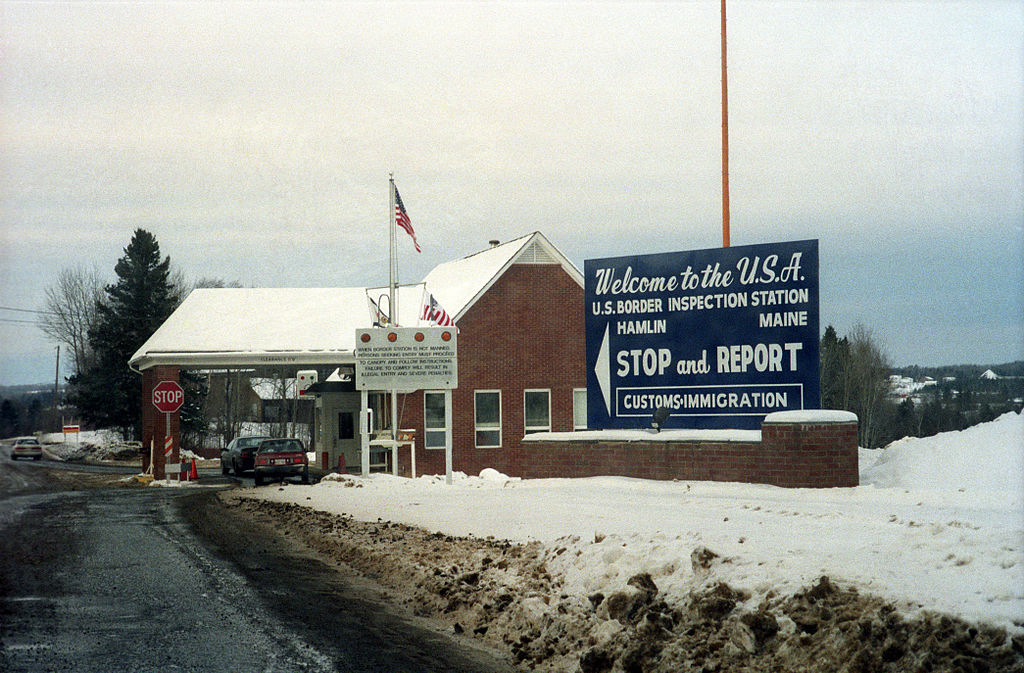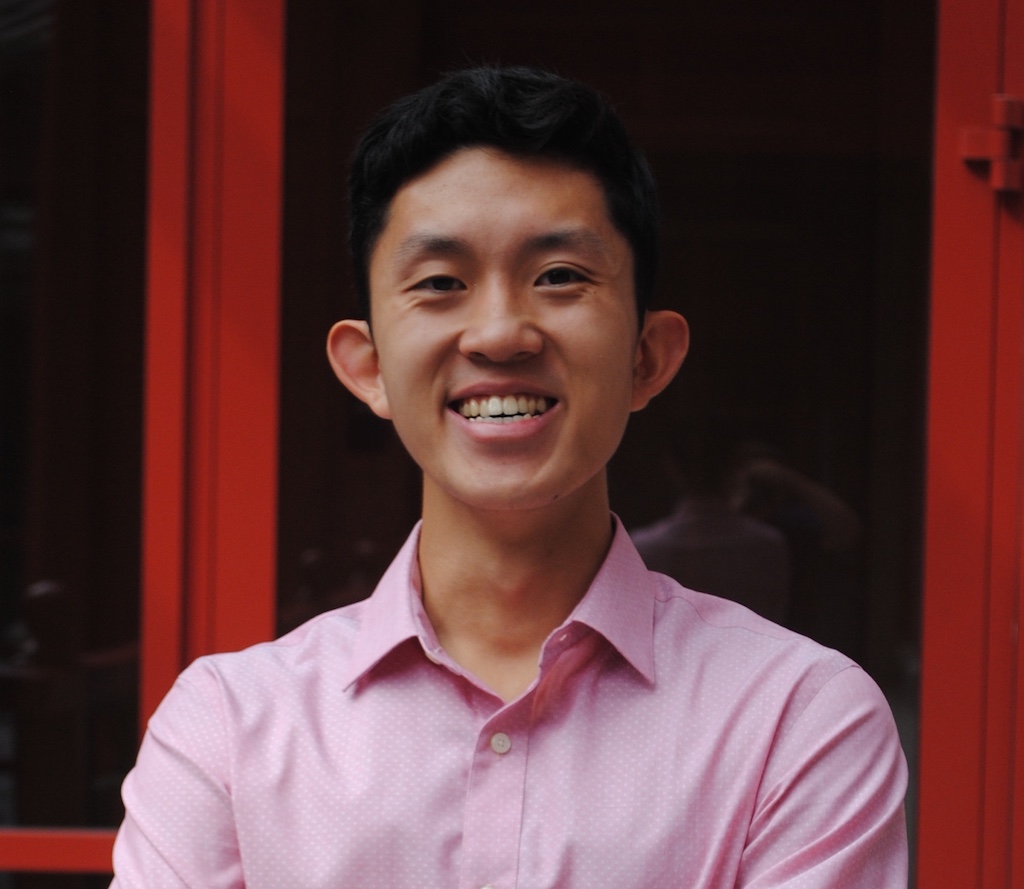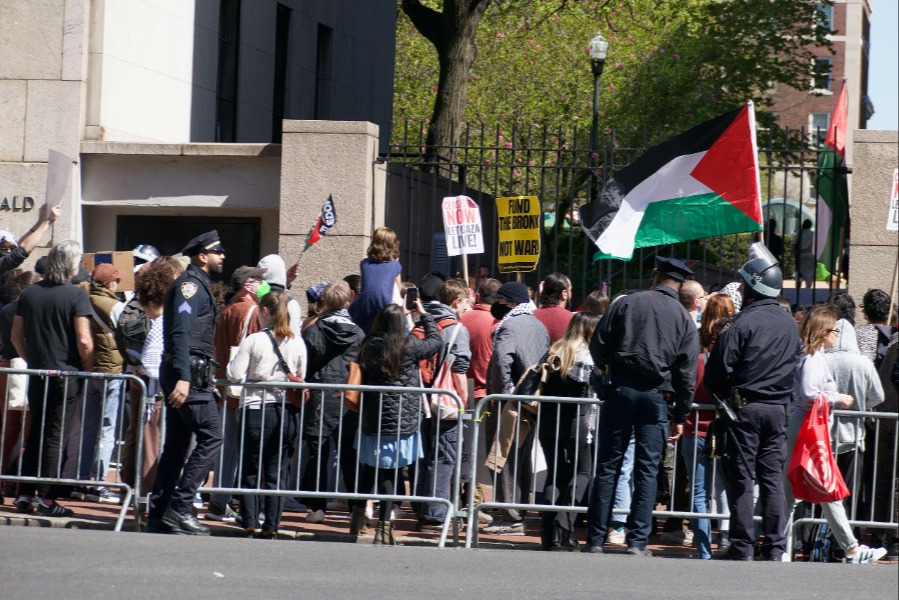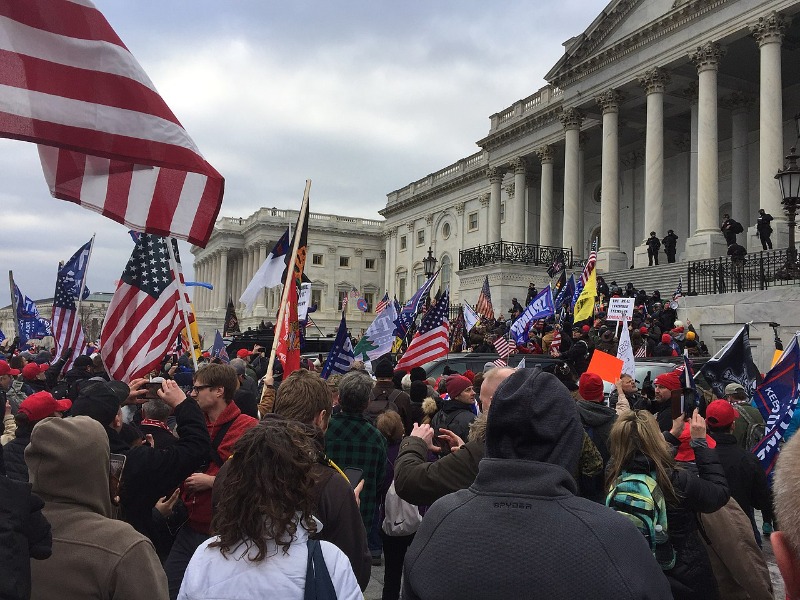Canadian Islamic State Suspect Extradited to the United States
The U.S. extradites a Canadian citizen on terror charges, Canada debates its relationship to China and other Canadian national security news.

Published by The Lawfare Institute
in Cooperation With

Abdullahi Ahmed Abdullahi, a Canadian national and former San Diego resident, appeared in U.S. federal court on Oct. 25, following his extradition from Canada to the United States on terror charges. Abdullahi lived in Minneapolis and San Diego before “moving to Canada and becoming a naturalized Canadian citizen.” In a press release, the U.S. Attorney’s Office for the Southern District of California revealed that Abdullahi has been charged in a two-count indictment with “conspiring to provide, and providing, material support to terrorists.”
The unsealed indictment references five co-conspirators, all of whom died fighting for the Islamic State in Syria.
Thanks to the testimony of Abdirahman Bashir, one of Abdullahi’s cousins, federal prosecutors now have a fairly complete picture of how Abdullahi and his co-conspirators came to support the Islamic State. CBC reports that Bashir, who became an FBI informant, provided testimony in a 2018 sentencing hearing for an Islamic State supporter. Bashir “offered [the bureau] insights into [the Islamic State’s] covert communications and persuasive recruiting tactics.” In his testimony, Bashir named and described the five co-conspirators: Hamse and Hersi Kariye, Hanad Mohallim, Mahad Hersi, and Douglas McCain. Bashir indicated that, as young boys, he and Abdullahi looked up to their two older cousins, Hamse and Hersi Kariye. The Kariye brothers led what Bashir described as a “thug lifestyle,” but after becoming radicalized, they embraced fundamentalist Islamic tenets and began to impart the importance of jihad to Bashir, Abdullahi, and another cousin, Hanad Mohallim. The Kariyes; Mohallim; another cousin, Mahad Hersi; and a family friend, Douglas McCain—the five co-conspirators referenced in the indictment—eventually traveled to Syria to wage jihad.
The indictment detailed a wealth of evidence supporting the two counts against Abdullahi—one charging him with “conspiracy to provide material support to terrorists” and the other charging him with “providing material support to terrorists.” Under the first count, the indictment notes, Abdullahi “agreed to travel to Syria to support and join terrorist fighters,” agreed and encouraged others to commit crimes against non-Muslims “to obtain money and items to finance and support … travel to Syria,” and “agreed to send, did send, and caused others to send money via Western Union to other members of the conspiracy.” The second count repeats many of the allegations from the first count. The first count also alleges that Abdullahi played a role in the January 2014 robbery of an Edmonton, Alberta, jewelry store. The Edmonton Journal reports that on Oct. 18, just before Abdullahi’s extradition, Alberta’s Crown Prosecution Service stayed its armed robbery with a firearm charge against Abdullahi. A Crown spokesperson said that “there was no reasonable likelihood of conviction” on that count.
Canadian authorities arrested Abdullahi in September 2017 and extradited him to the United States on Oct. 24, 2019. Justice John S. Little of the Court of Queen’s Bench of Alberta—the province’s superior court—committed Abdullahi for extradition in May 2018. As Justice Little explained in his memorandum of decision, in order to extradite a person, the judge must be satisfied that “had the [specified] acts occurred in Canada, prosecution would be justified.” Justice Little stressed that the role of the extradition judge “is a modest one … the sole purpose of an extradition hearing is to ensure that the evidence establishes a prima facie case that the extradition crime has been committed.” The evidence indicated that Abdullahi “provided funds to people for their use in fighting for ISIS.” Justice Little was satisfied that “had the acts occurred in Canada, prosecution would be justified” and that Abdullahi was “indeed the person sought by the United States,” and thus ordered Abdullahi’s committal into custody. Abdullahi appealed the decision up to the Court of Appeal of Alberta, but a three-judge panel affirmed Little’s decision, writing that the “extradition judge properly identified the test for committal.” Abdullahi’s case will now make its way through the U.S. federal judicial system.
Despite Strained Bilateral Ties, Canada Participates in Chinese Military Games
In late October, the Canadian Armed Forces dispatched a large delegation to the seventh edition of the Military World Games, held in Wuhan, China. President Xi Jinping noted that the Military World Games provide a forum for military athletes from around the world to build bridges and to engage in “mutual learning.” The Globe and Mail, Canada’s leading newspaper, broke the story, noting that “Ottawa didn’t issue any news release before or during the games to draw attention to Canada’s participation.” A Department of National Defense spokesperson told the Globe and Mail that Canada had sent “114 athletes, 57 coaches and support staff.”
Canada’s sending of a delegation of military athletes to China comes at a time of strained relations between Beijing and Ottawa. Canadian officials arrested Meng Wanzhou, chief financial officer of Huawei, in December 2018, in connection with a U.S. extradition request. Associate Chief Justice Heather Holmes of British Columbia’s Supreme Court—the province’s superior trial court—has scheduled Meng’s formal extradition hearing for Jan. 22, 2020.
In response to Meng’s arrest, Beijing detained two Canadian citizens, Michael Spavor and Michael Kovrig, and then formally arrested the men in May 2019 on espionage charges. The Canadian government and international allies have condemned the arrests of the two Canadians as “arbitrary” and political. China also retaliated against Meng’s arrest by blocking Canadian canola exports in March, and by blocking Canadian pork and beef exports in June. On Nov. 5, Prime Minister Justin Trudeau announced that China had lifted the ban on pork and beef exports. Experts have noted, however, that China’s move could be motivated more by the effect of African swine fever, which has decimated Chinese pig stock, rather than by Beijing’s desire for warmer relations. Despite the resumption of commodities trade, bilateral tensions remain strained, and Kovrig and Spavor remain imprisoned.
In a press release, China’s Embassy in Ottawa cited Canada’s participation in the games as proof that “China’s friends are all over the world” and that “in the future, we will have more and more friends in various fields.” The press release noted that Canada’s participation “speaks volumes” about China’s global reach. Canada’s involvement in the military games was widely decried by Canadian pundits and foreign service veterans. Mark Towhey, writing for the conservative Toronto Sun, argued that “as long as China continues to hold two innocent Canadian citizens in prison, Canada must stop pretending it’s business as usual between our two nations.” Towhey suggested that the military games were about more than sport, arguing that “Canada’s military is a tool of government and military action is an extension of diplomacy.” Another commentator, writing for Global News, cast the decision as “seriously misguided.” Guy St. Jacques, former Ambassador to China, called on Ottawa to reform its China strategy, arguing that “now that we have seen the dark side of China, we have to have a much more realistic approach to China.”
The United States has similarly called on Ottawa to rethink its China strategy. Back in May, Vice President Mike Pence visited Ottawa and asked Canada to exclude Huawei from 5G network construction. And in a recent interview with CBC, Susan Rice, who served as U.S. national security adviser between 2013 and 2017, spoke extensively about Sino-Canadian relations. Rice argued that Canada’s arrest of Meng was the correct decision and warned that “it’s not beneficial for Canada to back down” to Beijing. Like Pence, Rice cautioned Ottawa against allowing Huawei to build Canada’s 5G network, warning that “it gives the Chinese the ability, if they choose to use it, to access all kinds of information.” Ottawa has yet to make a decision on Huawei’s role in 5G network construction.
Domestically, the prime minister faces pressures from certain parts of the Canadian establishment to eschew the harder-line approach that Pence and Rice have promoted. The Globe and Mail has reported that Canadian intelligence agencies are “at odds over whether Ottawa” should block Huawei from its 5G networks, with at least one agency arguing that “robust testing and monitoring of Huawei’s … equipment could mitigate potential security risks.” In addition, certain Canadian businesspeople and political leaders want Ottawa to begin focusing again on increasing trade to China. The Globe and Mail has reported that the Canadian business community is “eager to move on after a year of friction.” Notably, Stephen McNeil, premier of the Province of Nova Scotia, has continually pushed for more trade with and investment in China. McNeil told the Globe that “the idea that we’re going to moralize and preach and lecture societies, in some cases 5,000 years old, hasn’t worked out very well,” and he hoped that “with time and continued engagement, the relationship will endure and grow.” David Mulroney, a former Canadian ambassador to China, tweeted that the business community’s pro-trade sentiments were “shameful.” In general, despite Susan Rice’s warnings and China’s treatment of Ottawa over the past year, it is clear that a stable cohort of voices within the Canadian political establishment are pushing for engagement and increased trade rather than for a firmer stand against Beijing.
In Other News
- The Canadian Press has revealed that Canadian defense authorities speculate that the consequences of climate change may lead more African countries to “call for help from the Canadian military.” The paper obtained access to a report from the Department of National Defense, which detailed the damage that climate change would wreak on the African continent, including the “introduction of pathogens … to new areas by migrants” and the creation of “tensions between animal herders seeking more fertile grazing lands and conventional farmers in western Africa’s Sahel region.” As a result of these problems, the report suggests, African partners may increasingly request help from the Canadian Armed Forces. Canada currently maintains a relatively light presence on the continent, with “defence attaches in seven African countries” and personnel on “peace-support operations in the Democratic Republic of the Congo and South Sudan.”
- Prime Minister Trudeau has announced that Greta Bossenmaier, his national security and intelligence adviser, will be retiring in December of this year. Bossenmaier is the third person to serve in this position. Bossenmaier had previously served in a series of senior public service roles, including as chief of the Communications Security Establishment, which is Canada’s national cryptologic agency, and as a deputy minister for the Afghanistan Task Force within the Privy Council Office. Thomas Juneau, a national security analyst, has noted that the Canadian national security adviser has “more limited authority” than the U.S. national security adviser. Still, Bossenmaier was praised as a professional and as a “trailblazer for women.” The prime minister announced that David Morrison, his foreign and defense policy adviser, would act as the national security and intelligence adviser temporarily and that a new adviser would be appointed after Bossenmaier’s retirement.





